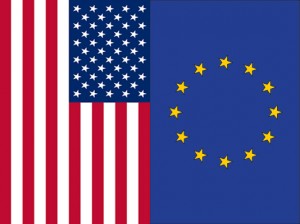 By last Friday, 347 comments had been submitted to the US Trade Representative in response to its Request for Comments on the Transatlantic Trade and Investment Agreement (TTIP). Numerous comments addressed intellectual property concerns (and many suggested that IPRs should be left out of the agreement all together). Also, many comments highlighted the need for greater transparency in TTIP negotiations than has been the norm in other trade negotiations, such as ACTA. The full docket will be made available here, though currently not all of the comments have been uploaded. Below are excerpts from some of the comments made that referred to copyright provisions that may be under negotiation.
By last Friday, 347 comments had been submitted to the US Trade Representative in response to its Request for Comments on the Transatlantic Trade and Investment Agreement (TTIP). Numerous comments addressed intellectual property concerns (and many suggested that IPRs should be left out of the agreement all together). Also, many comments highlighted the need for greater transparency in TTIP negotiations than has been the norm in other trade negotiations, such as ACTA. The full docket will be made available here, though currently not all of the comments have been uploaded. Below are excerpts from some of the comments made that referred to copyright provisions that may be under negotiation.
Library Copyright Alliance (Full Comment)
“First, we strongly urge that the TTIP include provisions aimed at harmonizing public access to the results of government-funded research… Second, we question the appropriateness of attempting to negotiate an intellectual property chapter in TTIP. The European Union generally provides higher levels of protection for copyright and related rights, including features that probably violate the U.S. Constitution.”
Public Knowledge (Full Comment)
“If, the USTR decides to negotiate a copyright chapter, it should be guided by the following principles: i) The copyright provisions of the TTIP should be balanced, protecting the rights of both copyright owners and users; and ii) The copyright chapter of the TTIP must preserve domestic policy flexibilities and respect differences in U.S. and E.U. laws.”
Knowledge Ecology International (Full Comment)
“Robust limitations and exceptions should be feasible, and in some cases, even required. Any language on limitations and exceptions should take care to protect those exceptions that fall outside Comments of KEI on the Transatlantic Trade and Investment Partnership the three-step-test, including the specifically enumerated exceptions found in the Berne Convention such as those for news reporting; works of speeches, addresses and lectures; the quotation right; use for teaching; legal texts; compulsory licensing for music; use for translations; and broadcasting exceptions. These categories of limitations and exceptions are not subject to the confines of the threestep test, and in some cases are mandatory.”
Computer and Communications Industry Association (Full Comment)
“Although both the US and EU have a mutual appreciation for robust and nuanced intellectual property rights regimes, substantial policy differences remain between the respective systems. Moreover, both copyright and patent law are facing fundamental questions of efficacy and credibility, and extensive reviews of both systems are beginning or underway on both sides of the Atlantic. The TTIP should not lock US policy into obsolete or flawed aspects of our IPR systems while they are undergoing heavy reexamination.”
Center for Democracy and Technology (Full Comment)
“Copyright is an area in which the substantive legal framework is the subject of very active public and legislative debate… In light of all this activity through the regular democratic and legislative process, TTIP negotiators should be wary of addressing substantive matters of copyright law. Provisions based on current US law, for example, could later prove ill-considered or unwieldy if Congress pursues fundamental reforms to the copyright statute. Indeed, they could even serve as serious obstacles to legislative reform, effectively locking in by international agreement substantive copyright provisions that Congress might soon wish to revise… CDT strongly urges against wading into questions of substantive copyright law. But if TTIP negotiators nevertheless go down that path, it would be imperative to include provisions to ensure an appropriate balance among the needs of content creators, the needs of the information- and technology-using public, and societal values such as free speech.”




